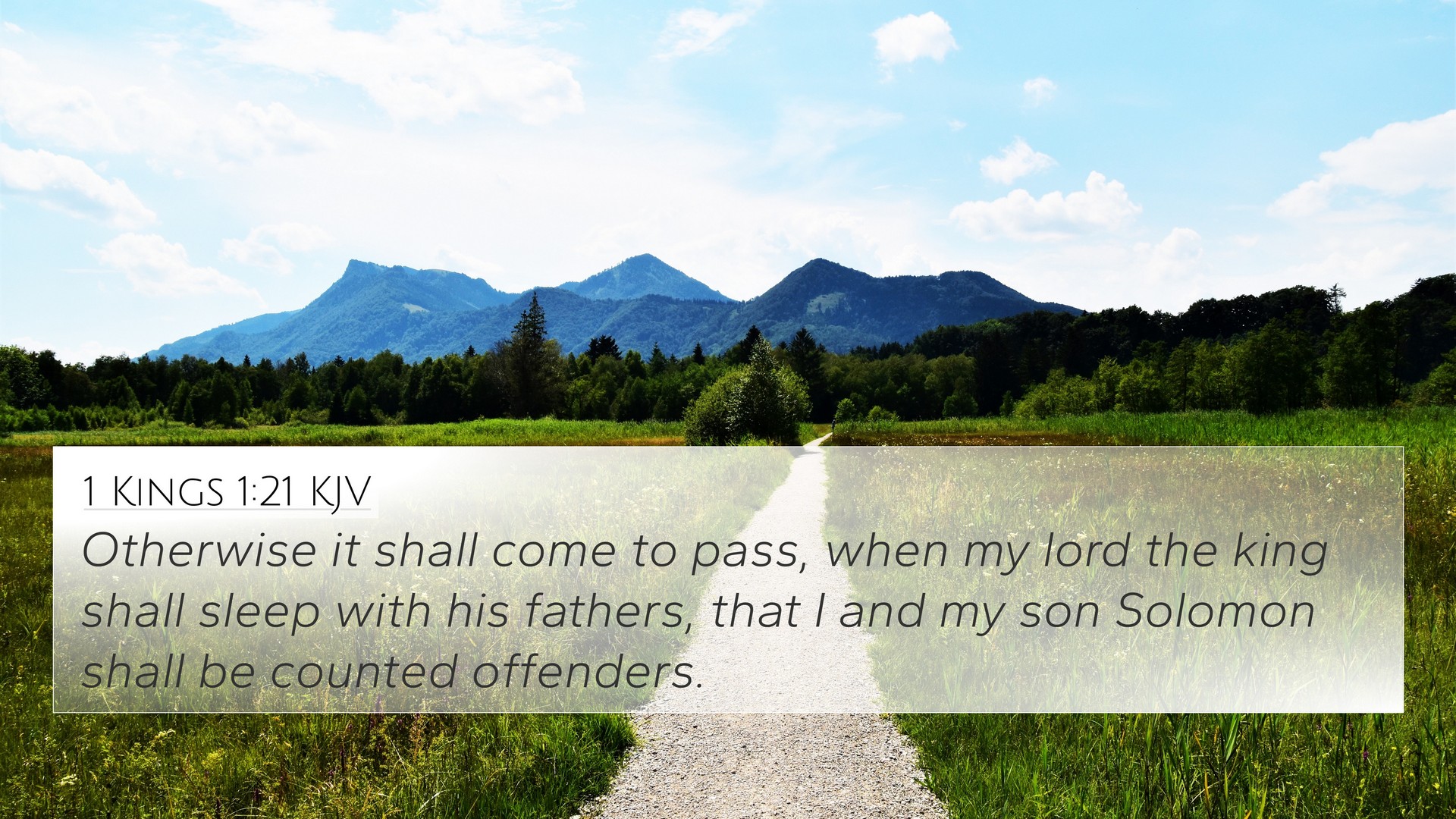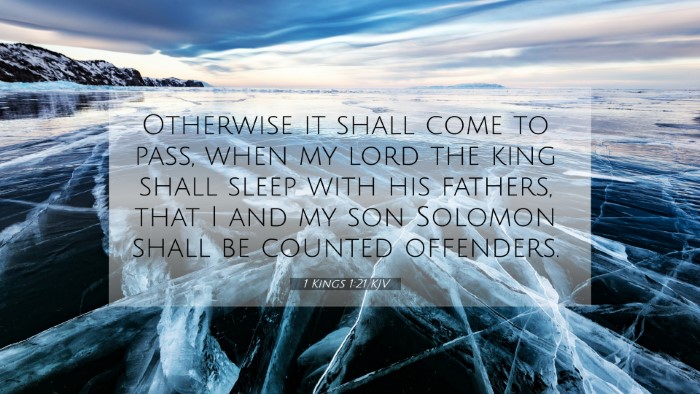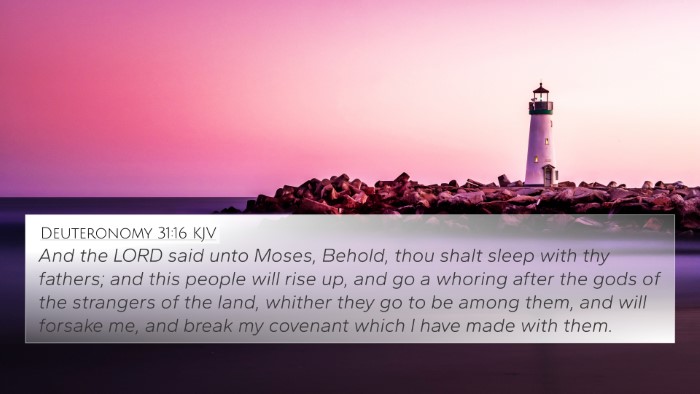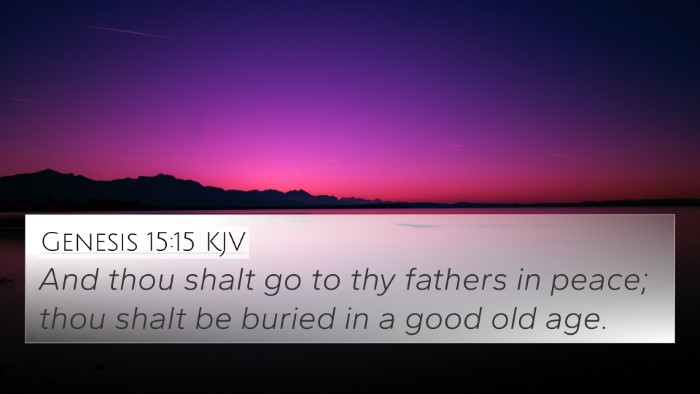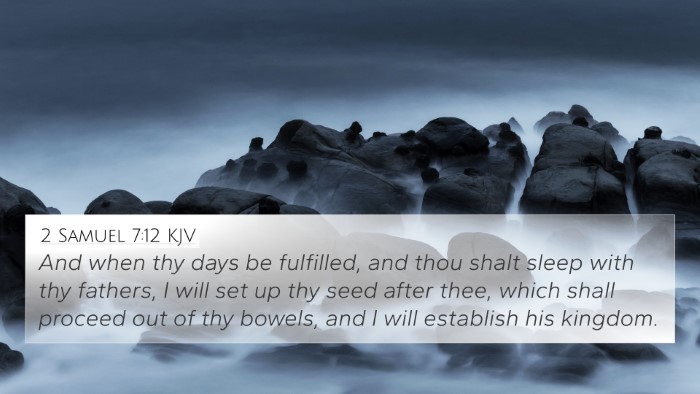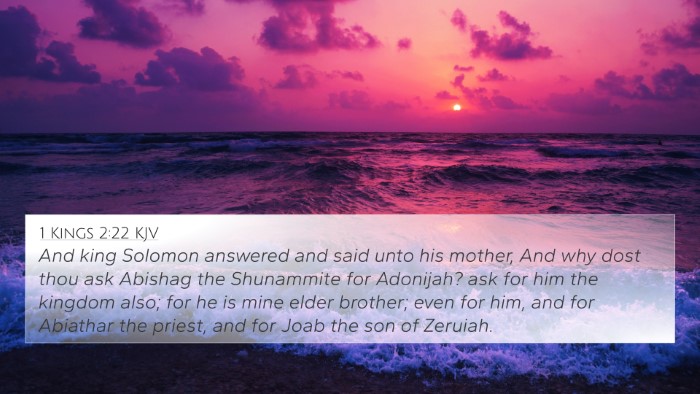Understanding 1 Kings 1:21
Verse: 1 Kings 1:21 - "Otherwise it shall come to pass, when my lord the king shall sleep with his fathers, that I and my son Solomon shall be counted offenders."
Summary of the Verse
This verse captures the anxiety of Bathsheba as she approaches King David. The essence of her words reflects a critical issue regarding succession and the legitimacy of Solomon's claim to the throne in light of Adonijah's ambitions.
Commentary Insights
-
Matthew Henry's Commentary:
Henry highlights that the plea of Bathsheba underscores the tension surrounding the succession to David's throne. She fears that the death of David would result in her and her son's marginalization, emphasizing the importance of David’s assurance to her about Solomon’s future.
-
Albert Barnes' Commentary:
Barnes discusses the implications of Bathsheba's words, suggesting that they demonstrate the precarious nature of power dynamics within the royal family. This assertion of her fears indicates her strategic positioning in a volatile political environment where Solomon's right to the throne is less than guaranteed.
-
Adam Clarke's Commentary:
Clarke points out that Bathsheba's expression of concern reflects her awareness of the political machinations of the time. The danger Bathsheba articulates not only refers to her and Solomon’s safety but also highlights the potential chaos that could ensue from a power vacuum.
Thematic Connections
This passage relates to multiple themes prevalent in the Biblical narrative, such as leadership, power struggles, and divine promise. It also encourages reflection on God’s plans amidst human uncertainty.
Cross-References
- 1 Chronicles 22:6-10: God's promise to David regarding Solomon's kingship.
- 2 Samuel 12:24-25: The birth of Solomon and God’s favor upon him.
- 1 Kings 2:12: Solomon taking the throne after David.
- 2 Samuel 3:1: The long war between the house of Saul and the house of David.
- 1 Kings 1:5: The rise of Adonijah, illustrating the political rivalries.
- 1 Kings 1:32-40: Solomon anointed king, fulfilling God's promise.
- Proverbs 16:9: God's sovereignty over human plans and actions.
Inter-Biblical Dialogue
The discourse surrounding 1 Kings 1:21 invites readers to explore the biblical tension between divine appointment and human action. It appears echoed in New Testament contexts where legitimacy and authority come into question, such as in the ministry of Jesus.
Practical Applications using Cross-References
When studying this verse and its connections through cross-referencing, readers can engage in a deeper understanding of:
- How David's promises to Bathsheba shape the narrative of Solomon's kingship.
- The implications of royal succession and the conflict it creates.
- Understanding biblical authority in the context of God's overarching plan.
Tools for Bible Cross-Referencing
To delve deeper into the connections between these verses, consider utilizing tools for cross-referencing such as:
- Bible concordance for detailed searchability.
- Bible cross-reference guide for thematic connections.
- Cross-reference Bible study materials for comprehensive understanding.
Conclusion
1 Kings 1:21 illustrates not only a moment of personal strife for Bathsheba but also a pivotal moment in the biblical historical narrative regarding the monarchy of Israel. Its connections to the larger narrative of David and Solomon's legacy make it a significant verse for both personal reflection and scholarly study.
